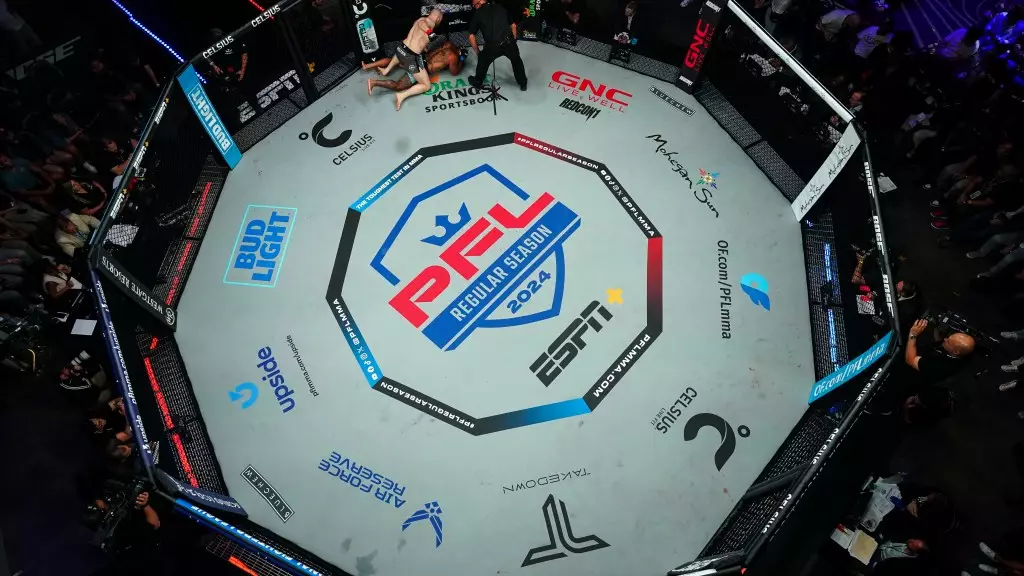In a strategic departure from its previous formats, the Professional Fighters League (PFL) has unveiled an ambitious plan for its upcoming tournament season, set to commence in April. This announcement comes amidst a backdrop of significant fluctuations within the organization, including the high-profile acquisition of Bellator’s brand and roster. The PFL’s new format will feature single-elimination tournaments spanning across eight weight classes, promising to captivate MMA enthusiasts around the globe.
The new tournament will consist of eight fighters per division, encompassing seven men’s divisions from bantamweight to heavyweight, alongside a single women’s flyweight division. This shift signifies a move toward a more simplified and exciting competition structure, contrasting with prior seasons that featured six divisions and $1 million championships. The total prize pool for this season has been set at an impressive $20 million, highlighting the league’s commitment to providing fighters with lucrative opportunities and escalating the stakes in each bout.
Opening rounds are slated for April 3, 11, and 18, 2024, with semifinal matches scheduled for mid-June and the finals held in August. Notably, these bouts will be aired across ESPN’s platforms, ensuring broad accessibility to fans. The decision to utilize a single-elimination format not only increases the excitement surrounding each fight but also emphasizes the high stakes involved, making every match pivotal for the competitors involved.
While the excitement of a single-elimination format brings with it a heightened sense of urgency and competition, it also raises questions about the implications for fighters. The PFL’s prior model of regular season bouts allowed for ongoing opportunities and build-up, which may have provided fighters with a more strategic path to the postseason. The abrupt shift to a knockout format presents both challenges and rewards, demanding fighters to perform at their peak with no margin for error.
Moreover, the lack of a men’s flyweight tournament raises eyebrows, suggesting that the PFL may need to reevaluate its approach to inclusivity across its divisions. The decision is particularly important as fans expect diversity within the sport, and the omission could inadvertently alienate certain fighter demographics.
The PFL’s recent acquisition of Bellator has stirred mixed reactions among its fighters and managerial staff, with reports of contracts and fight opportunities being contentious topics in recent discussions. This transition phase also poses a challenge for the PFL as it integrates Bellator’s roster while addressing grievances concerning fighter treatment. The organization’s ability to effectively manage these concerns will be critical in sustaining the integrity and reputation of the newly expanded league.
CEO Peter Murray’s comments expressing excitement for this new format underscore the PFL’s ongoing commitment to innovation within mixed martial arts. As the league braces for this radical transition, it will be interesting to observe how these changes resonate with both fighters and fans, potentially altering the landscape of professional MMA. The spotlight is firmly on the PFL as it embarks on this new venture, poised to redefine combat sports in the years to come.

